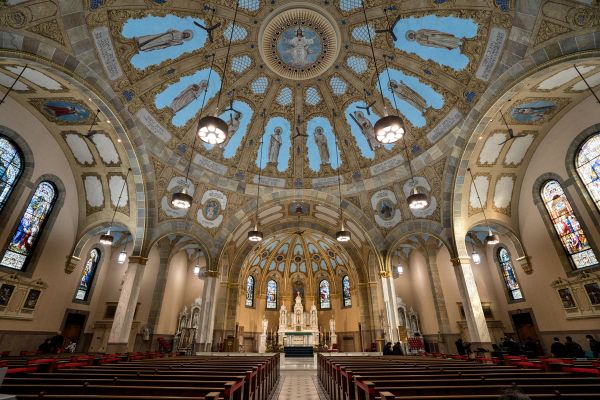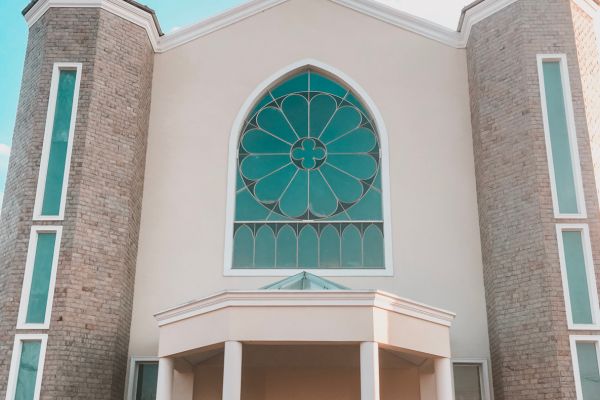When a church applies for a loan, you may be wondering who signs for a church loan. The individuals who sign the loan documents are typically authorized church representatives. This may include the pastor, members of the board of directors or trustees, or other designated leaders. The individuals who sign the loan documents are known as borrowers and are typically responsible for repaying the loan according to the terms and conditions outlined in the loan agreement.
Who Signs For A Church Loan? Discover The Process
The individuals who sign a church loan are typically authorized church representatives and are responsible for repaying the loan according to the terms outlined in the loan agreement. Before signing, it is essential for the church and its representatives to carefully review the loan terms and understand their obligations and the church’s ability to repay the loan.
The church as a whole, rather than individual members, is considered the borrower, and the church’s assets may be used as collateral to secure the loan. Before signing a loan agreement, it is essential for the church and its representatives to carefully review the terms and conditions of the loan to ensure that they understand their obligations and that the loan is in the best interest of the church.
The loan agreement should include details about the loan amount, interest rate, repayment terms, and any fees associated with the loan. It is also essential for the church to understand its credit standing and ability to repay the loan. Churches with a solid financial history and good credit scores may be able to secure a loan with more favorable terms. In contrast, those with a weaker financial profile may face higher interest rates and stricter repayment terms.
Definition of a church loan
A church loan is a type of financial borrowing that a religious organization obtains, typically a church, to finance its various operations, programs, and projects. This loan can be a traditional bank loan, a line of credit, or a bond issuance. The funds obtained through a church loan can be used to pay for building renovations or construction, purchase equipment or supplies, pay staff salaries, or fund mission trips or other outreach programs. The loan is typically secured by the church’s assets and requires repayment over a set period, with interest and additional fees.
Purpose of a church loan
A church loan is a financial loan obtained by a church to help fund various activities, such as building and renovation projects, purchasing new equipment, starting new programs or services, or covering operating expenses. The purpose of a church loan is to provide the church with the necessary funding to support its mission and vision and to help the church grow and reach more people. The loan may come from various sources, such as banks, credit unions, or specialized lenders. The loan terms, interest rates, and repayment schedules will vary based on the lender, the loan’s purpose, and the church’s creditworthiness.
The Church’s Responsibility:
Legal Structure of the Church: This refers to the formal organization and governance of a church, including its structure, decision-making processes, and leadership roles. The church’s legal system can vary depending on the denomination, country, and other factors.
Authority to Borrow Money: This refers to the power or ability of a church to take out loans or other forms of debt for its operations or capital expenditures. The authority to borrow money is typically governed by the church’s legal structure and any relevant laws or regulations.
Who Can Sign for a Church Loan: This refers to the individuals or groups within a church who is authorized to sign or enter into a loan agreement on behalf of the church. This will typically be specified in the church’s legal documents and bylaws and may involve the approval of the church’s governing body or leadership.
The Lender’s Perspective
1. Requirements for Approving a Loan
When lending to a church, the lender typically considers several key factors to determine whether to approve the loan. The requirements may vary from lender to lender, but some common ones include the following:
- The church’s credit history, financial stability, and loan repayment ability.
- The purpose of the loan includes the specific use of funds and the project’s feasibility.
- Collateral, including the value of the property or assets the church offers as security for the loan.
- Legal compliance, including any necessary permits, licenses, and other requirements
2. Considerations for Approving a Loan to a Church
When considering a loan to a church, lenders take into account several key considerations, such as:
- The stability and reputation of the church, including its history and mission.
- The strength and stability of the church’s leadership, including its leadership structure and experience.
- The size and growth potential of the church’s congregation, as well as its income and expenses.
- The church can generate income and generate revenue, including its fundraising activities, donations, and other sources of income.
3. Risks and Benefits for the Lender
Lending to a church can offer several benefits for the lender, including:
- Potential for a stable and steady income stream, as the church is likely to have a constant flow of funds from its congregants and other sources.
- Lower risk of default, as churches are typically well-established organizations with a solid commitment to repay their debts.
However, lending to a church also comes with certain risks, including:
- The possibility of lower returns on investment compared to other types of loans, as interest rates for church loans may be lower.
- The possibility of political or social controversy, as some churches may be associated with particular religious or political views that may be controversial.
- The possibility of changes in leadership or the church’s mission may impact its ability to repay the loan.
Some individuals or groups have the legal authority to sign a loan agreement on behalf of the church. Here’s what each of them does
1. Pastor or Religious Leader – This person provides spiritual guidance to the church members and leads the congregation in worship. In some cases, the pastor may be authorized to sign a loan agreement on behalf of the church.
2. Board of Directors or Trustees – This is a group of individuals responsible for overseeing the management and administration of the church. They may be authorized to sign a loan agreement on behalf of the church.
3. Church Secretary or Treasurer – The church secretary is responsible for maintaining accurate records and taking minutes of meetings. The treasurer manages the church’s finances, including collecting and disbursing funds. In some cases, either the secretary or treasurer may be authorized to sign a loan agreement on behalf of the church.
4. Other Authorized Signatories – This category includes any other individuals given the authority to sign a loan agreement on behalf of the church. This could consist of members of the finance committee or other church leaders.
In general, the signing authorities for a church loan will depend on the specific policies and procedures of the church, as well as any relevant state or federal laws. It is essential to carefully review the loan agreement and understand the responsibilities and obligations of the signatories before signing on behalf of the church.
Frequently Asked Question On Who Signs For A Church Loan
-
How does a church get a loan?
Like other non-profit organizations, churches can apply for loans to finance their operations or capital projects. The process of obtaining a loan for a church is similar to that of any other business, although some specific requirements may apply to churches.
First, the church needs to identify the type of loan it requires, whether it’s a long-term loan for purchasing property or a short-term loan to fund ongoing operations. Once the church has identified its funding needs, it should prepare a detailed business plan and financial projections to demonstrate its ability to repay the loan.
The next step is approaching potential lenders such as banks, credit unions, or specialized religious lenders. The church must provide its financial statements, including income and expense reports, balance sheets, and cash flow statements, to the lender for review. Additionally, the church may be required to provide collateral, such as property or equipment, to secure the loan.
If the church meets the lender’s criteria, the loan application will be approved and receive the funds it needs. The church must make regular payments, including principal and interest, to repay the loan according to the agreed-upon terms.
-
Can I get a loan to start a church?
Yes, getting a loan to start a church is possible, but it can be challenging. Banks and other traditional lenders may be hesitant to finance a new church because they may view it as a risky investment.
Some specialized religious lenders cater to churches and religious organizations. Still, they may have specific requirements that need to be met, such as demonstrating a certain level of financial stability or having a certain number of members.
Additionally, some lenders may require the church to have certain financial support from its members before they consider providing a loan. Therefore, it’s essential to have a solid business plan, financial projections, and a strategy to build a stable congregation to increase the chances of getting approved for a loan to start a church.
-
Who lends money to churches?
Several types of lenders offer loans to churches, including:
- Banks and Credit Unions: Many banks and credit unions offer loans to non-profit organizations, including churches.
- Specialized Religious Lenders: Some lenders specialize in providing loans to churches and other religious organizations. They may have specific requirements that need to be met, such as a certain level of financial stability or congregation size.
- Government Programs: Some government programs provide loans to non-profit organizations, including churches, such as the Small Business Administration’s (SBA) Community Advantage Program.
When seeking a loan, it’s essential to research and compares the options available to determine the best fit for the church’s needs.
-
Can a pastor get a loan from the church?
A pastor may be able to obtain a loan from the church, but it depends on the church’s policies and procedures. A loan may be possible if the church has a policy allowing loans to be made to its employees, including the pastor.
However, it’s important to note that lending money to a pastor can create a conflict of interest and potential legal and ethical issues. If the pastor cannot repay the loan, it could put the church in a difficult financial situation and create tension between the pastor and the congregation.
Therefore, churches should consider the potential risks and benefits of lending to pastors or employees and establish clear policies and procedures to guide their decision-making.






